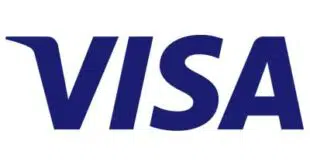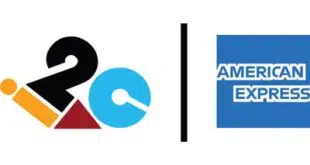By Jim Daly
Results of a merchant processor’s survey released Wednesday claim that only 4% of small businesses have point-of-sale terminals that can accept near-field communication (NFC) contactless mobile payments, and only a small minority currently plan to upgrade their equipment so they can.
Meanwhile, payment processor Vantiv Inc. on Wednesday said it is the first merchant acquirer to successfully complete a Europay-MasterCard-Visa (EMV) chip debit card transaction using the card networks’ so-called common application identifier (AID) so that merchants can get the transaction-routing choices mandated by the Dodd-Frank Act’s Durbin Amendment.
In finding that the vast majority of small businesses currently can accept only conventional magnetic-stripe payment cards, the October survey by New York City-based Newtek Business Services Inc. did not reveal anything that most people in the merchant-acquiring businesses didn’t already know. But the survey does give some insight into the difficulty of the task acquirers face as they try to build a persuasive business case for small merchants to replace reliable but outdated POS mag-stripe-only terminals with devices that take EMV chip cards and can handle mobile payments. Most of the new terminals now being deployed are capable of processing contactless payments, including NFC-based transactions on smart phones.
Eighty-two percent of Newtek’s respondents said no, their POS equipment could not accept NFC contactless payments, like those through Apple Inc.’s new Apple Pay mobile-wallet service. Fourteen percent of respondents were not sure.
Further, only 7% of respondents answered yes when asked if they were planning to upgrade their terminals “to make contactless NFC payment options like Apple Pay available to your customers,” while 93% answered no.
“Our recent October poll depicts indifference towards contactless mobile payments and the use of contactless/NFC-type communications in the near future,” Newtek chief executive Barry Sloane said in a news release. “This somewhat surprising sentiment and information source tells us that there is a significantly greater need within the payments industry to explain and demonstrate the benefits and significance of mobile and contactless payments to merchants and merchant acquirers. Most of our clients still do not understand the new [EMV] requirements and clearly do not see the importance and value of mobile payments away from traditional swipe or contact payment sources.”
Sloane, however, predicted that feelings about contactless payments “will change dramatically over time,” in no small part because the younger generation “uses their mobile phones for everything, and this future force of consumption will drive the method by which consumers pay.”
Apart from responding to consumer demand, millions of merchants are about to become acquainted with EMV and NFC issues because come next October they face a liability shift under which the payment card networks will assign to them financial responsibility for counterfeit card fraud if their terminals don’t support EMV.
One of the biggest EMV issues for acquirers as well as card issuers is enabling, as required by the Durbin Amendment, PIN-based debit cards to provide merchants a choice of at least two unaffiliated networks over which to route a debit purchase, the theory being that choice will lower merchants’ card-acceptance costs. Carrying out that mandate has been a big back-office job for processors and networks because the EMV standard, which was created years before Congress passed Dodd-Frank, was designed to route transactions only onto the networks of the standard’s owners, particularly Visa Inc. and MasterCard Inc. In contrast, existing mag-stripe cards facilitate Durbin routing choices fairly easily.
Visa and MasterCard struck agreements earlier this year with all of the major PIN-based debit networks, agreements that created the common AIDs that move transactions onto those networks’ rails. Vantiv declared in a Wednesday press release that “it is the first U.S. acquirer to successfully complete the nation’s first debit EMV chip transaction utilizing the Durbin-compliant methodology known as U.S. common AID.”
“The first debit chip transaction using the U.S. common AID is an important milestone in our journey toward chip adoption in the United States,\” Stephanie Ericksen, vice president of risk products at Visa, said in the release. \”Operationalizing a regulatory-compliant chip solution for debit cards will help merchants and issuers adopt chip technology more quickly, especially important as we approach the 2015 counterfeit fraud liability shift.”
Vantiv, which is based in suburban Cincinnati and processes transactions for card issuers in addition to merchants, said it is testing a joint EMV issuing and merchant certification program to help both financial institutions and merchants prepare for next year’s EMV liability shift.
Vantiv will issue EMV debit and credit cards certified by Visa and MasterCard beginning in January. The processor said more than 200 banks and other financial institutions have requested such cards.
In order to ease the EMV certification process, Vantiv also said it has created a service called Viable for merchants and their application-developer partners to test and validate payments infrastructure with all four major card brands—Visa, MasterCard, American Express and Discover—without having to use a third-party provider for each test.






